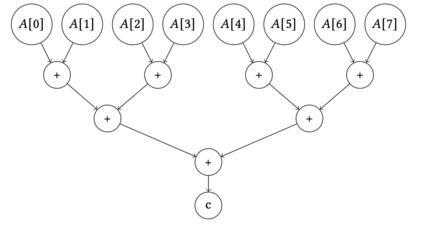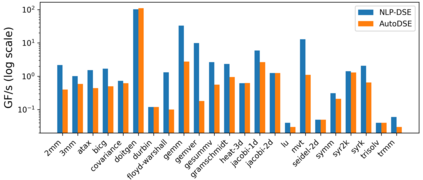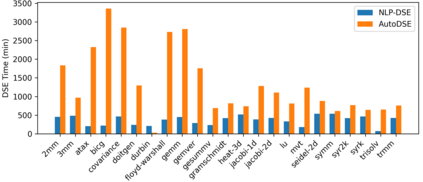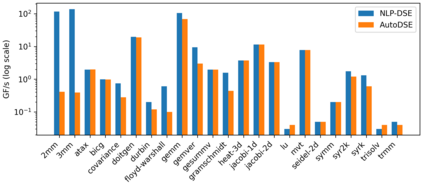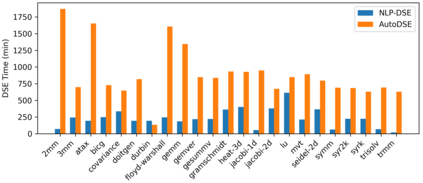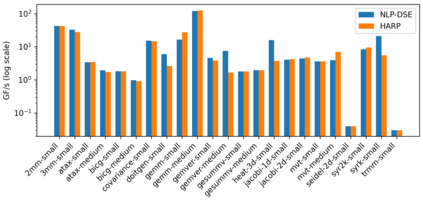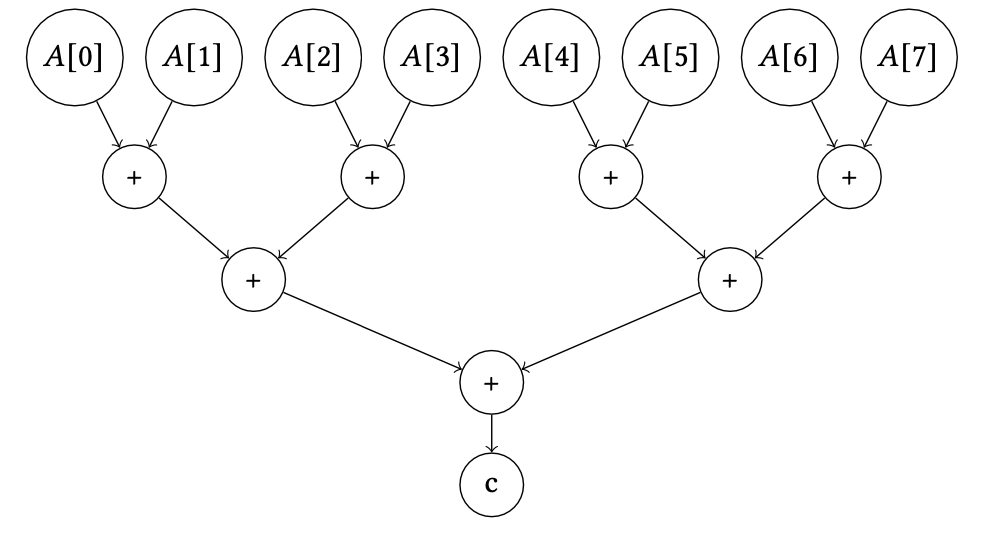High-Level Synthesis enables the rapid prototyping of hardware accelerators, by combining a high-level description of the functional behavior of a kernel with a set of micro-architecture optimizations as inputs. Such optimizations can be described by inserting pragmas for e.g. pipelining and replication of units, or even higher level transformations for HLS such as automatic data caching using the AMD/Xilinx Merlin compiler. Selecting the best combination of pragmas, even within a restricted set, remains particularly challenging and the typical state-of-practice uses design-space exploration to navigate this space. But due to the highly irregular performance distribution of pragma configurations, typical DSE approaches are either extremely time consuming, or operating on a severely restricted search space. In this work we propose a framework to automatically insert HLS pragmas in regular loop-based programs, supporting pipelining, unit replication (coarse- and fine-grain), and data caching. We develop an analytical performance and resource model as a function of the input program properties and pragmas inserted, using non-linear constraints and objectives. We prove this model provides a lower bound on the actual performance after HLS. We then encode this model as a Non-Linear Program, by making the pragma configuration unknowns of the system, which is computed optimally by solving this NLP. This approach can also be used during DSE, to quickly prune points with a (possibly partial) pragma configuration, driven by lower bounds on achievable latency. We extensively evaluate our end-to-end, fully implemented system, showing it can effectively manipulate spaces of billions of designs in seconds to minutes for the kernels evaluated.
翻译:暂无翻译

